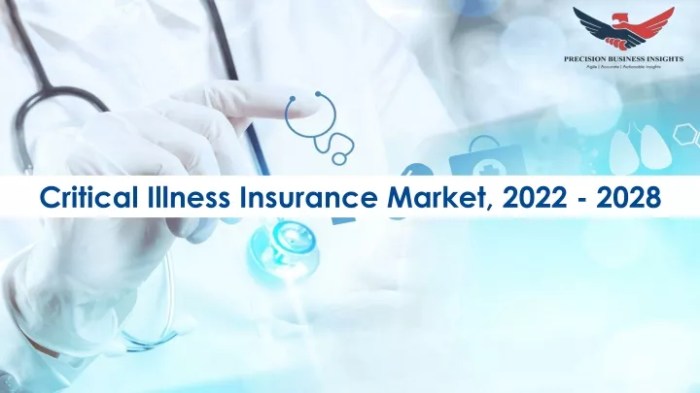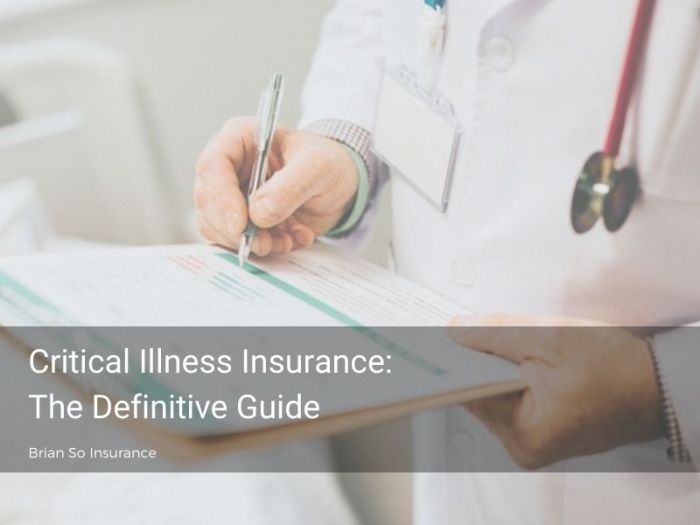Navigating the world of critical illness insurance can feel overwhelming. With so many providers and policies available, choosing the right coverage for your needs requires careful consideration. This comprehensive guide will equip you with the knowledge to evaluate critical illness insurance plans effectively in 2025 and beyond, ensuring you secure the best protection for yourself and your family.
Understanding Critical Illness Insurance: A 2025 Perspective
Critical illness insurance provides a lump-sum payout upon diagnosis of a specified critical illness, such as cancer, heart attack, stroke, or kidney failure. This payout can be used to cover medical expenses, lost income, or other financial burdens associated with a serious illness. The landscape of critical illness insurance is constantly evolving, with new advancements in medical technology and changing healthcare costs influencing policy design and premiums.
In 2025, several factors should be at the forefront of your evaluation:
Key Considerations for 2025
- Inflationary Pressures: The rising cost of healthcare necessitates a thorough assessment of the policy’s payout amount. Ensure the sum assured is sufficient to cover anticipated medical expenses and lost income, considering future inflation.
- Technological Advancements: Medical breakthroughs are constantly expanding the range of treatable illnesses. Check if your policy covers newly emerging critical illnesses or offers coverage for innovative treatments.
- Early-Stage Diagnosis Coverage: Some policies now offer payouts even at early stages of diagnosis, providing crucial financial support for timely and potentially life-saving treatments. Look for policies with such provisions.
- Mental Health Coverage: Increasing awareness of mental health issues has led to some insurers expanding coverage to include specific mental health conditions. Inquire about the policy’s inclusion of mental health illnesses.
- Waiver of Premium Benefit: This valuable feature waives future premium payments if you are diagnosed with a covered critical illness, providing significant financial relief during a challenging time.
Factors to Consider When Evaluating Critical Illness Insurance Policies
Choosing the right critical illness insurance policy requires a detailed evaluation of several crucial factors:

Source: dentalandmedical.com
1. Sum Assured
The sum assured is the lump-sum payout you receive upon diagnosis. Determine the appropriate amount by considering your medical expenses, potential lost income, rehabilitation costs, and other financial obligations. Consult a financial advisor to calculate the optimal sum assured based on your individual circumstances and future projections.
2. Definition of Critical Illnesses
Carefully review the policy’s definition of covered critical illnesses. Some policies offer broader coverage than others. Look for policies that include a wide range of critical illnesses and their various stages. Pay attention to specific wording and exclusions.
3. Waiting Periods
Waiting periods are the timeframes after policy inception before coverage begins for specific illnesses. Shorter waiting periods are generally preferable, but they may come with higher premiums. Understand the waiting periods for different illnesses covered under the policy.
4. Premium Payments
Consider the premium payment options available. Policies may offer monthly, quarterly, semi-annual, or annual payment schedules. Choose a payment frequency that fits your budget and financial planning.
5. Policy Term

Source: slideserve.com
The policy term refers to the duration of the coverage. Policies are available for various terms, ranging from a few years to lifelong coverage. Select a term that aligns with your long-term financial goals and risk assessment.
6. Claim Process
Investigate the insurer’s claim process. A straightforward and transparent claim process can significantly ease the burden during a stressful time. Look for insurers with a proven track record of efficient claim settlements.
7. Insurer’s Financial Stability
Ensure the insurer is financially stable and reputable. A financially sound insurer minimizes the risk of claim denials or policy lapses due to the insurer’s insolvency. Check the insurer’s ratings from independent rating agencies.
8. Additional Benefits and Riders
Many insurers offer additional benefits or riders, such as accelerated death benefits or coverage for specific treatments. Explore these options to enhance your policy’s coverage and tailor it to your individual needs. These riders may increase the premium, so weigh the costs and benefits carefully.

Source: briansoinsurance.com
Frequently Asked Questions (FAQs)
- Q: How much critical illness insurance do I need? A: The amount of coverage depends on your individual circumstances, including your age, health, income, existing savings, and family responsibilities. Consulting a financial advisor is highly recommended.
- Q: Can I get critical illness insurance if I have a pre-existing condition? A: Insurers assess applicants’ health status. Pre-existing conditions may affect your eligibility or premium rates. Disclosure of all relevant health information is crucial during the application process.
- Q: What happens if I am diagnosed with multiple critical illnesses? A: The policy’s terms and conditions will specify how multiple claims are handled. Some policies offer a payout for each covered illness, while others may have limitations.
- Q: Can I change my critical illness insurance policy later? A: Policy changes are possible, but they may involve adjustments to premiums or coverage. Contact your insurer to understand the process and implications.
- Q: What are the tax implications of critical illness insurance payouts? A: Tax implications vary depending on your location and the specific policy terms. Consult a tax advisor for personalized guidance.
Sources
For further information and resources, refer to the following websites:
- Your Insurance Website (Replace with a reputable insurance comparison website)
- Health Insurance Resource (Replace with a reputable health insurance resource website)
- Financial Planning Site (Replace with a reputable financial planning website)
Call to Action
Securing adequate critical illness insurance is a crucial step in safeguarding your financial future. Don’t delay – take the time to carefully evaluate your options and choose a policy that aligns with your specific needs and circumstances. Contact a qualified insurance broker or financial advisor today for personalized guidance and assistance in finding the right critical illness insurance coverage for you and your loved ones.
FAQ
What is the difference between critical illness insurance and disability insurance?
Critical illness insurance pays a lump sum upon diagnosis of a specified critical illness, regardless of your ability to work. Disability insurance, conversely, provides income replacement if you become unable to work due to illness or injury.
Can I get critical illness insurance if I have a pre-existing condition?
Some insurers may offer coverage, but it might come with exclusions or higher premiums. Disclosure of pre-existing conditions is crucial during the application process.
How often should I review my critical illness insurance policy?
It’s advisable to review your policy annually or whenever significant life changes occur, such as marriage, childbirth, or a change in employment.
What happens if my critical illness isn’t explicitly listed in the policy?
Policies typically list specific critical illnesses. If your illness isn’t listed, you won’t receive a payout. Carefully review the policy’s definition of covered illnesses.
